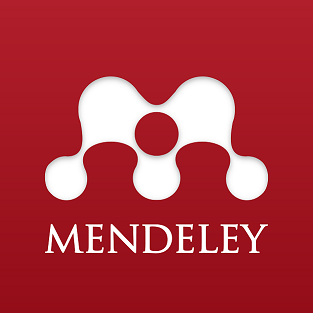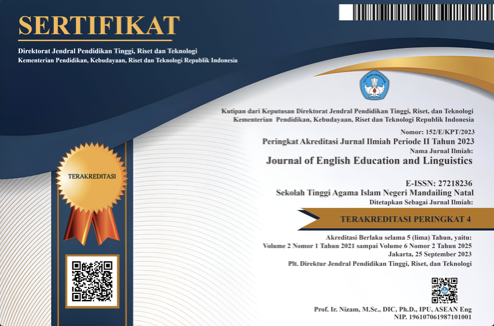Learning Loss during Covid-19 Pandemic in Indonesia and the Strategies to Minimize It
DOI:
https://doi.org/10.56874/jeel.v2i2.579Keywords:
Learning Loss, Covid-19 Pandemic, StrategiesAbstract
The current coronavirus (Covid-19) pandemic is having a profound impact, not only on people’s health, but also on how they learn, work and live. Amongst the most important challenges created by Covid-19 is how to adopt a system of education built around physical schools. Based on the Higher Education Law number 12 of 2012, Article 31 concerning Distance Education is a learning process that is carried out remotely through the use of various communication and information media. With the implementation of distance learning during the pandemic and the problems that occurred above, it turns out that this decision has the risk of causing learning loss for students. Asian Development Bank (ADB) estimates that school closures due to the Covid-19 coronavirus pandemic have made many students in Indonesia lose learning opportunities Based on the Human Capital Index 2020, Indonesia has a LAYS of 7.83 years. This research was conducted using qualitative descriptive research. This study aims to reveal the facts, phenomena, and circumstances that existed during the research process by providing what actually happened when learning activities took place with distance education. This burden is the responsibility of all elements of education, especially the state in facilitating the continuity of schools for all educational stakeholders to conduct distance learning. How should Indonesia plan, prepare, and overcome the Covid-19 recovery, in order to reduce the losses to the world of education in the future
References
Aji, R. H. S. (2020). Dampak Covid-19 pada Pendidikan di Indonesia: Sekolah, Keterampilan, dan Proses Pembelajaran. SALAM: Jurnal Sosial Dan Budaya Syar-I, 7(5), 395–402 https://doi.org/10.15408/sjsbs.v7 i5.15314
Asian Development Bank (2021) Learning and Learning Losses from Covid-19 School Closures in Developing Asia.Retrieved from https://www.adb.org/sites/default/files/publication/692111/ado2021-special-topic.pdf
on September 29th, 2021
Belafi, Carmen and Kaffenberger, Michelle (2020): Potential long-term learning losses due to COVID-19,
th without mitigation, RISE Programme, access on September 20 , 2021.
Charismiadji, Indra (2021) Siasati Learning Loss dengan Solusi Kolaboratif. Retrieved from
https://www.hitekno.com/internet/2021/09/06/113000/webinar-gredu-ft-classin-siasati-
th learningloss-dengan-solusi-kolaboratif, on September 30 , 2021
Euis Lesmini Djuanda (2021) Learning Loss’ Dampak Pandemi Covid-19. Retrieved from st
https://disdikkbb.org/news/learning-loss-dampak-pandemi-covid-19/ on October 1 , 2021
Suhardini & Nurhayati (2021) Menelisik Learning Loss Dunia Pendidikan di Indonesia. Retrieved from https://newmalangpos.id/menelisik-learning-loss-dunia-pendidikan-di- indonesia on October 1st, 2021.
Tateno, Y., & Zoundi, Z. (2021). Estimating the Short-term Impact of the COVID-19 Pandemic on Poverty in Asia-Pacific LDCs (Issue March).
Downloads
Published
Issue
Section
License
All articles published in the Journal of English Education and Linguistics are licensed under a Creative Commons Attribution-ShareAlike 4.0 International (CC BY-SA) license. This means anyone is free to copy, transform, or redistribute articles for any lawful purpose in any medium, provided they give appropriate attribution to the original author(s) and Journal of English Education and Linguistics, link to the license, indicate if changes were made, and redistribute any derivative work under the same license.
Copyright on articles is retained by the respective author(s) without restrictions. A non-exclusive license is granted to the Journal of English Education and Linguistics to publish the article and identify itself as its original publisher, along with the commercial right to include the article in a hardcopy issue for sale to libraries and individuals.
Although the conditions of the Creative Commons Attribution-ShareAlike 4.0 International (CC BY-SA) license do not apply to authors (as the copyright holder of your article, you have no restrictions on your rights), by submitting to the Journal of English Education and Linguistics, authors recognize the rights of readers and must grant any third party the right to use their articles to the extent provided by the license.

This work is licensed under a Creative Commons Attribution-ShareAlike 4.0 International License.








